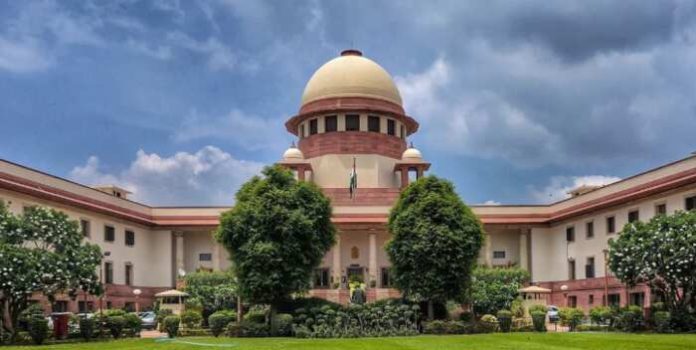Supreme court of India
Case number : 184 of 2014
Petitioner : Subramanian Swamy
vs.
Respondent : Union of India, Ministry of Law & ORS
Bench : Dipak Misra, Prafulla C. Pant.
INDRODUCTION
The case of Subramanian Swamy vs. Union of India was a landmark case concerning the constitutionality of the criminal defamation law in India. In the year of 2014 Dr. Subramanian swamy made a corruption allegation against Ms. Jayalathitha. In response, the Tamil Nadu state government had field a defamation case against Dr. Subramanian Swamy, the judgement of the case is delivered by two judge bench case Dipak Misra and Prafulla C. Pant.
Section 499 of the Indian Penal Code (IPC) define defamation and section 500 prescribe Punishment. Defamation is a crime under IPC and it define as, Spoken or written word or visible representation, concerning any person reputation, define as defamation. There is a exception to this that include imputation of truth for the public good.
FACTS
Several Petition were field under Article 32 of the Indian Constitution Challenging the Constitutional validity of criminal Defamation as given in section 499 of IPC.
In this case the writ petition was field challenging the constitutional validity of section 499 and 500, on the ground that it hampered peoples right to Freedom of Expression guaranteed under Article 19(1)(a) of the Indian Constitution.
Dr. Subramanian Swamy brought a corruption allegation against Ms. Jayalathiha who was CM of Tamil Nadu at that time. Tamil Nadu State government field defamation suit against Dr. Subramanian swamy. In the response of defamation charge Dr. Subramanian swamy questioned the validity of Defamation provision.
ISSUES RAISED
There has been two main issues raised in front of the court:
- Whether section 499 violate freedom of speech and expression given in the Article 19(1)(a) of the constitution.
- Whether section 199(1) and 199(4) of the constitution violate Article 19(a)(1).
PETITIONERS ARGUMENTS
Swamy argued that the law against criminal defamation restrict peoples right to express themselves freely. He believed that these law make it harder for individuals to speak out especially about public figure and issues of public interest. The case looked at the balance between two important rights, the right to free speech Article 19(1)(a) of the Constitution and right to a persons reputation. Petitioner contended that protecting someone reputation should not come at the cost of stifling free speech.
Swamy argued that these law should be reconsidered in light of modern democratic values. Swamy emphasized that allowing free speech is crucial for democracy and public accountability.
RESPONDENTS ARGUMENTS
Protection of reputation, the respondent argued that criminal defamation law are essential for protecting an individual right to reputation. They emphasized that reputation is a fundamental aspect of human dignity. The union of India defended the constitutionality of section 499 and 500 of the Indian Penal Code, asserting that these provision do not violate the right to freedom of speech.
The respondent contended that criminal defamation serve the public interest by discouraging false statement that could harm individual particular public figure. The argument include notion that protecting human dignity is a fundamental right under the constitution. The respondent maintain that criminal defamation law are necessary to uphold this dignity in public discourse.
JUDGEMENT
The judgement of the case is delivered by Justice Dipak Misra and Justice Prafulla C. Pant. The supreme court delivered a judgement in the case of Subramanian swamy vs. Union of India, Ministry of Law on May 13, 2016. In the Subramanian Swamy vs. Union of India case, the Supreme Court examined whether the law on criminal defamation (section 499 and 500 of IPC) were constitutional. The court recognized that these could limit the right to freedom of speech and expression. It also acknowledged the importance of protecting an individual reputation and dignity.
The judgement emphasized that free speech is vital, it is not absolute and must be in level. Ultimately, the court upheld the criminal defamation laws, stating that they are necessary to maintain respect and order in society while allowing for freedom of expression.
CONCLUSION
The case has a significant impact on the society, particularly regarding balance between freedom of speech and the individual reputation. The case has underscored the ongoing tension between protecting individual reputation and ensuring robust freedom of expression. Influencing both legal and societal attitudes towards these fundamental rights.


